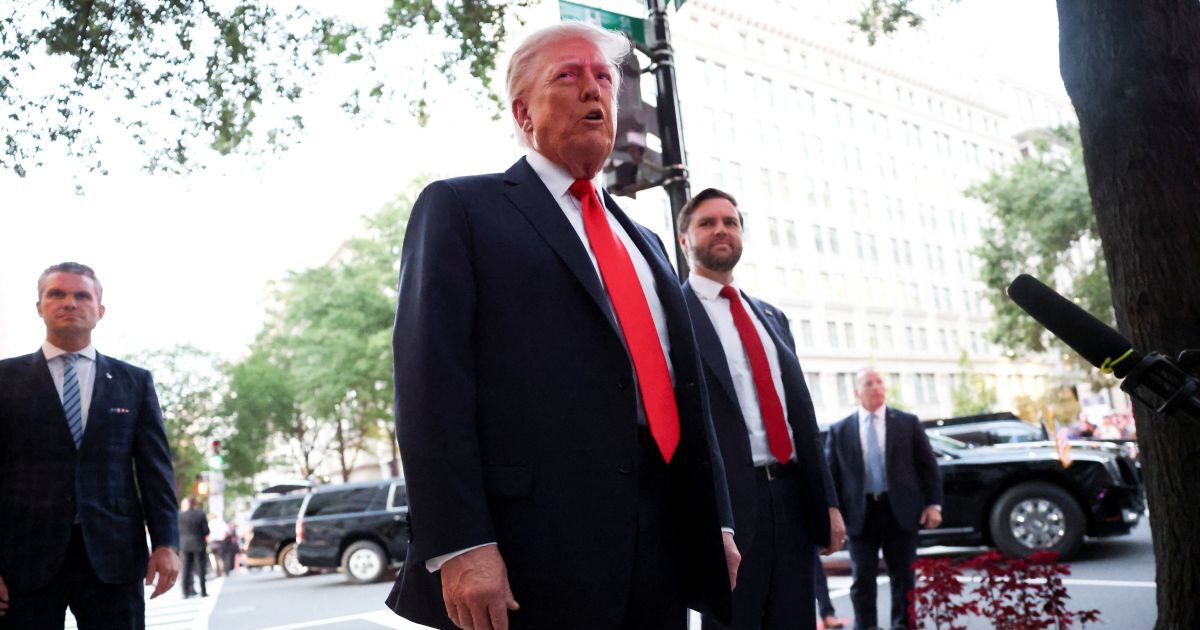At least unprecedented the attack of Israel against Hamas’s leadership in the center of Doha, his heart Qatarof the state that until yesterday was presented as the main mediator in Gaza Talks. Tel Aviv’s message is clear and non -negotiable: for the first time Israel is beating on Qatar’s territory, one of the narrower allies of the US and a central player in Gaza negotiations.
Benjamin Netanyahu is no longer enough in Gaza. New fronts light in the Middle East, testing strengths and balances. Washington is alerted at the last moment, while Donald Trump is once again a spectator on the sidelines of developments.
The White House confirms that Donald Trump was alerted a few minutes before the blow, without an accurate location. He appears angry: “I feel very bad about the place of the attack,” he says, expresses dissatisfaction with “every aspect of the business”.
“I am not satisfied with the whole situation. We want the hostages back, but we don’t satisfy the way this happened, “he adds to reporters.
With ten fighter aircraft, Israeli Air Force hit a building where Hamas leadership was meeting killing five of its members but failing to kill her leadership, as she longed for. A Qatar security official was also killed in the raid.
The operation under the code name “Council of Fire” has put the US president in a difficult position, according to a White House spokesman who spoke of “a unilateral bombing in a sovereign state” clarifying that the attack does not serve its targets. However, White House Press Secretary Caroline Livit added a tacit approval of the attack, saying that “the elimination of Hamas, which has benefited from the misery of those living in Gaza, is a remarkable target.”
Hamas said in a statement that its leaders survived the Israeli attack, but six people were killed and among them are Humam al-Haya, son of the organization’s main negotiator, Halil al-Haya. Also dead is Jihad Lambad, director of the Al-Haja office, as well as Abdullah Abdul Wahid, Lomen Hassouna, Ahmed al-Mamluk, and Dean Badr Sadre Mohammed al-Humai, a member of the interior.
In the aftermath of Israeli air raids targeted by Hamas negotiators, the Trump government appears to have once again been taken aback, as was the case with Israel’s attacks in June on targets of the Iranian military and nuclear program that overturned the US.
Trump officials have said that warnings of the forthcoming attacks in Qatar came so late that US officials were informed of the attack only when the Israeli F-16s were already on the road to the Gulf. But whether the US had a closer coordination with the Israelis for the attack than they admitted or not, the White House informed Qatar’s officials on the attack only ten minutes after it had begun, Qatar’s prime minister said Tuesday.
“I immediately commissioned the special envoy Steve Whitkov to inform the Qatarians of the forthcoming attack, which he did, but unfortunately, it was too late to stop the attack,” Trump said in a statement.
Until Tuesday afternoon, the White House was trapped between a policy of supporting Israel’s war against Hamas and a policy of improving relations with a key US ally in the area that has close links with his government, and in particular with Witkov.
The raids could mark the end of the Qatar negotiating process in the ceasefire, which has been mediated by Israeli and Hamas talks for almost two years.
Qatar Prime Minister Sheikh Mohammed bin Abdulrahman al -Thani said on Tuesday that the country will continue to mediate between Israel and Hamas, but “for current talks, I don’t think there is anything valid at this time after what we saw.”
Egypt could also act as a mediator, said Steven Cook, a senior member of the Foreign Relations Council, but it is a “unshakable project” when “neither the Israeli government nor Hamas leadership seem to be interested in an agreement.”
On Tuesday, Trump said he had assured Al-Thani and Emir Tamim bin Hamad al-Thani that “This will not happen again on their territory.” But Israel has implied the opposite. “There will be no immunity to terrorists – neither in Gaza, nor in Lebanon nor in Qatar,” Israeli ambassador to UN, Danny Danon, has warned.
“I think he really calls into question what is the intention of Prime Minister Netanyahu,” said Rachel Brandenburg, Managing Director in Washington and a senior associate at Israel Policy Forum, during a Podcast hosted by War on the Rocks.
“If he really serious about the negotiations and is serious about ending the war, then why strike the political leaders they are negotiating?”
